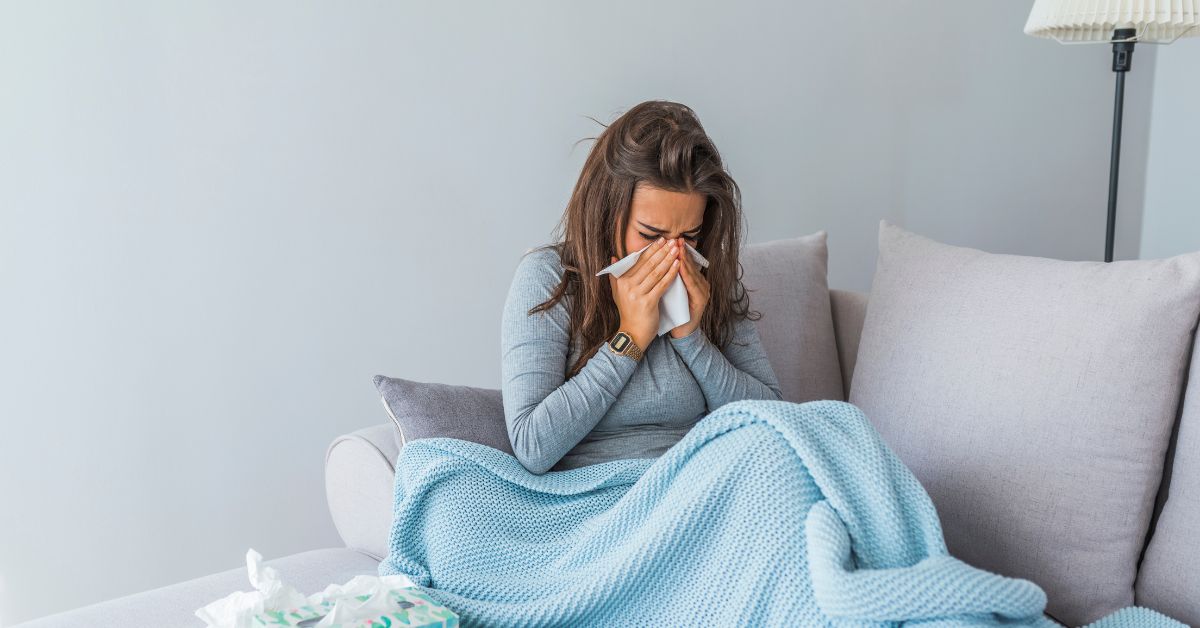If you’ve been dealing with persistent stomach pain, fatigue or unpredictable trips to the bathroom, you might be wondering if it’s stress or something more. For some people, these symptoms can be signs of a chronic condition called Crohn’s disease. Understanding how to diagnose Crohn’s disease can help you learn whether that’s what is causing your symptoms.
What is Crohn’s disease?
Crohn’s disease is a chronic, inflammatory condition that can affect any part of the gastrointestinal (GI) tract, which includes the mouth to the anus. It most often impacts the small intestine and the beginning of the colon.
It can cause symptoms like:
- Abdominal pain and cramping
- Diarrhea
- Blood in stool
- Weight loss
- Fatigue
- Fever
- Reduced appetite
- Joint swelling
- Anal drainage
- GI ulcerations
- Frequent bowel movements
- Shortness of breath (caused by anemia)
Because these symptoms can overlap with other conditions (like ulcerative colitis, irritable bowel syndrome or infections), getting the right diagnosis is important. If you have these symptoms, make an appointment with a gastroenterologist to start the process.
How to diagnose Crohn’s disease
Diagnosing Crohn’s can take time and involve several tests, but understanding how to diagnose Crohn’s disease can make it feel a little less overwhelming.
Medical history and physical exam
The first step usually involves a detailed conversation with your doctor. They’ll ask about:
- Your symptoms and how long they’ve lasted
- Your bowel habits
- Any weight loss or fatigue
- Family history of inflammatory bowel disease or autoimmune conditions
- Past surgeries, medications, or travel history
A physical exam will follow, where your doctor may gently press on your abdomen to check for tenderness or swelling.
Blood and stool tests
These lab tests help rule out other issues and explain inflammation or infection.
- Blood tests can check for anemia (common in Crohn’s), signs of inflammation (like high C-reactive protein or ESR) and low levels of nutrients.
- Stool tests can rule out infections and check for markers like calprotectin or lactoferrin, which suggest inflammation in the intestines, as well as the presence of blood hidden in stool.
Imaging tests
Imaging helps doctors visualize the GI tract and spot inflammation, blockages or other complications.
- CT scan or MRI enterography: These tests can show detailed images of the small intestine and surrounding tissues.
- Ultrasound (used more often in children or certain settings): May detect thickened bowel walls or abscesses.
Endoscopic procedures
These are key to confirming a Crohn’s diagnosis.
- Colonoscopy: A thin, flexible tube with a tiny camera is inserted through the rectum to view the entire colon and the end of the small intestine. Your doctor can take biopsies, which are tiny samples of tissue, for testing.
- Upper endoscopy: If symptoms suggest upper GI involvement (like nausea or vomiting), this test examines the esophagus, stomach and beginning of the small intestine.
- Capsule endoscopy: If Crohn’s is suspected in the middle of the small intestine, you may swallow a small camera in capsule form to capture thousands of images as it passes through.
Biopsy results
Tissue samples taken during endoscopy are examined under a microscope. Crohn’s disease often shows signs like:
- Inflammation extending deep into the bowel wall
- Granulomas (a specific type of inflammatory cell cluster, though this is not always present)
- Patchy areas of inflammation, known as “skip lesions”
These findings help distinguish Crohn’s from other gastrointestinal conditions like ulcerative colitis or infections.
Why a diagnosis can take time
No single test exists that confirms Crohn’s disease. Doctors need to piece together your history, test results and physical findings to make a diagnosis. Sometimes this means repeating tests or monitoring symptoms over time.
What happens after diagnosis?
Once Crohn’s is diagnosed, your doctor will discuss a treatment plan that may include medications (like anti-inflammatories, immunosuppressants or biologics), dietary changes and sometimes surgery. Early and accurate diagnosis is key to managing symptoms and preventing complications.
Crohn’s disease treatments
Crohn’s disease doesn’t have a cure. There are medical treatments to ease symptoms and reduce inflammation that may trigger a flare-up. Medical treatment options include:
- Antibiotics: Certain treatments, such as ciprofloxacin and metronidazole, may reduce the amount of drainage and may heal sores.
- Anti-diarrhea supplements: Psyllium powder or methylcellulose relieves diarrhea.
- Anti-inflammatory drugs: Short-term use of prednisone and budesonide reduces inflammation inside your body.
- Immunosuppressant drugs: These keep your immune system from causing flare-ups and also reduce inflammation in your immune system.
If your symptoms are getting in the way of daily life and traditional treatments haven’t worked, surgery may be an option.
Surgery may repair your digestive tract. A surgeon removes the part of your digestive tract that Crohn’s disease has damaged. Fistulas and abscesses are closed and drained.
Surgery isn’t a cure. It’s a temporary solution until the disease enters another part of your GI tract.
Reducing Crohn’s disease flare-ups
Over time, you may find that certain lifestyle changes help to ease symptoms and reduce the number of flare-ups you have. Remedies may include:
- Exercise: Gentle movement stabilizes the way your bowels function and eases symptoms.
- Quitting smoking: It’s unclear why, but smokers have an increased risk of developing the disease. Smoking makes it worse.
- Diet: Reduce fiber, spicy foods and dairy products that may inflame your GI tract. Increase lower-fat foods so your intestine can digest fat better.
- Eating habits: Eat smaller portions and drink clear liquids (water is best) throughout the day. Decrease alcohol and caffeine. They may inflame your GI tract or produce gas.
- Alternative medicine: Probiotics, prebiotics, fish oil and other herbal supplements may ease symptoms. You should always discuss possible drug interactions with your doctor.
Medications and other remedies may ease your symptoms. Reduced symptoms make it easier to go about your daily life without worrying about a flare-up.
Preventing Crohn’s disease
Doctors can’t yet prevent Crohn’s disease because the cause is still unclear. If you live a healthy lifestyle, it may keep your body from triggering inflammation. You can also try the following to stop inflammation:
- Eat more fish
- Avoid smoking
- Eat a diet high in fruits and vegetables
- Reduce the amount of red meat in your diet
- Drink lots of water to keep your gut lubricated
- Reduce the amounts of trans-fats and refined sugar in your diet
- Avoid processed foods and artificial colors, flavors and preservatives
- Increase the amount of fermented foods in your diet to balance the ratio of good and bad bacteria in your gut
How we can help
If you suspect you might have Crohn’s disease, reach out to a gastroenterologist. They can explain how to diagnose Crohn’s disease and what treatment might look like for you.
While the diagnostic process can feel long and sometimes frustrating, it’s essential for getting the right care. With proper management, many people with Crohn’s lead full, active lives.
Learn about the digestive health and gastroenterology services we offer at Mercy Health.






